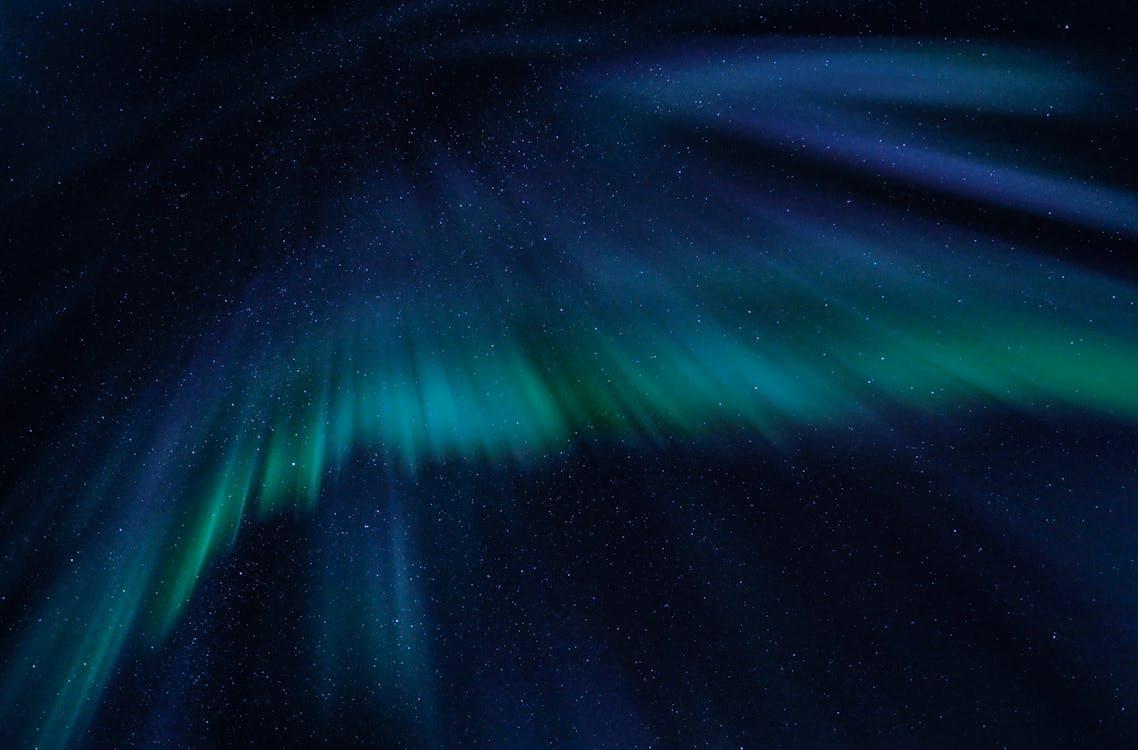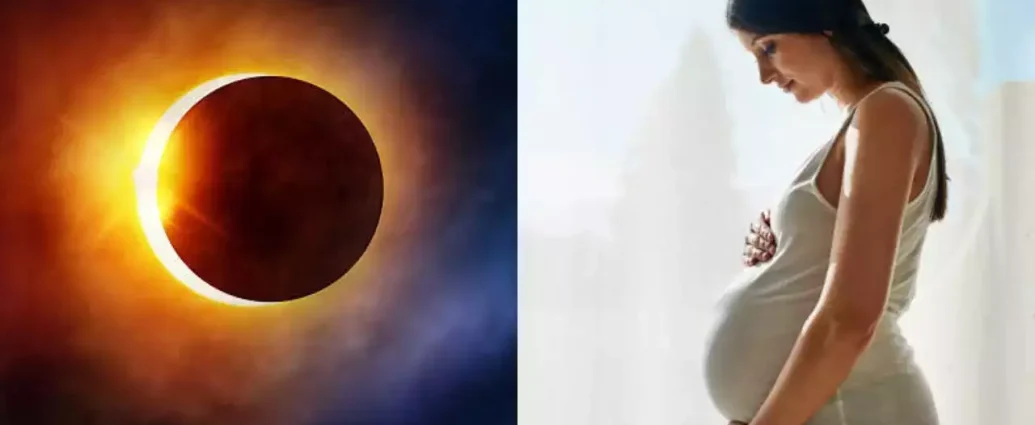For centuries, solar eclipses have captivated the human imagination, inspiring awe, fear, and a plethora of myths and beliefs. Among these, the notions surrounding pregnancy during a solar eclipse have been particularly intriguing. Some cultures hold firm beliefs that eclipses can have profound effects on unborn children, leading to widespread anxiety and precautionary measures among expectant mothers. But how much truth lies behind these ancient myths? In the age of science and reason, it’s vital to distinguish fact from fiction and understand the actual effects, if any, that solar eclipses may have on pregnancy.
This article aims to shed light on these age-old beliefs, explore scientific perspectives, and provide practical safety precautions for pregnant women during a solar eclipse. With the right information, expectant mothers can experience the wonder of a solar eclipse without undue worry, ensuring the well-being of both themselves and their unborn child.
The Myths Surrounding Pregnancy and Solar Eclipses:

Pregnancy is a time filled with hope, anticipation, and often, a good measure of caution. It’s no wonder then that across different cultures and times, many myths have swirled around the impact of solar eclipses on pregnancy. These myths, ranging from ancient beliefs to modern interpretations, continue to shape the precautions many expectant mothers take during these celestial events.
- Ancient Beliefs
In many ancient cultures, solar eclipses were seen as powerful omens that could influence or foretell significant life events. Among these, pregnancy was often a prime focus. For example, in some parts of India, it was believed that solar eclipses could cause physical deformities or health issues in unborn children. This belief stemmed from Hindu mythology which posited that celestial bodies like the sun and moon wield direct influence over human destiny. Similar fears could be found in various indigenous cultures across the globe, where eclipses were sometimes seen as bad omens that could harm pregnant women and their babies by bringing dark energies into the world.
- Modern Interpretations
Despite advancements in science and a greater understanding of celestial phenomena, modern interpretations of eclipse-related myths still hold sway in many communities. One prevalent myth is that pregnant women should not go outside or participate in the viewing of a solar eclipse, as doing so could harm their unborn child. Another suggests that expectant mothers must avoid using sharp objects during an eclipse to prevent birthmarks or deformations in the baby. Though these beliefs lack scientific backing, they persist, underscoring the enduring power of cultural lore over rational understanding.
Effects of Solar Eclipses on Pregnant Women:
When discussing the effects of solar eclipses on pregnant women, it helps to differentiate between proven scientific facts and the realm of myth and speculation. While cultural narratives abound, the truth is that solar eclipses pose no more physical danger to pregnant women than to anyone else. However, the event can have varying impacts, from physical reactions due to environmental changes, to emotional and cultural signs.
- Physical Impacts
Solar eclipses, remarkable though they are, do not directly affect human health according to current scientific knowledge. The absence of sunlight during an eclipse can lead to a slight drop in temperature, which can in rare cases cause temporary physical discomfort. For pregnant women, who can sometimes be more sensitive to changes in their environment, this might mean taking extra precautions to stay warm or comfortable during the eclipse. However, these are general considerations relevant to anyone exposed to similar changes in weather or temperature.
- Emotional Effects
The emotional impact of a solar eclipse can be profound, irrespective of one’s pregnancy status. However, pregnant women may experience these emotions more intensely due to the hormonal changes associated with pregnancy. Feelings of awe, wonder, or even fear can be amplified during this time. Moreover, if a pregnant woman is influenced by cultural myths concerning the dangers of eclipses, she might experience unnecessary stress or anxiety. In these cases, it’s crucial for expectant mothers to seek accurate information and support from medical professionals and loved ones to alleviate fears.
- Cultural Significance:
For many expectant mothers, the cultural significance of a solar eclipse can be deeply impactful. Participating in traditional practices or rituals during an eclipse can provide a sense of connection to one’s heritage and community. This can be especially meaningful during pregnancy—a time when many women seek to strengthen their ties to family and ancestral wisdom. However, it is important to balance tradition with a clear understanding of what is safe and beneficial for both mother and child. Seeking guidance from trusted community elders and healthcare providers can help navigate these cultural practices safely.
In conclusion, while the myths surrounding pregnancy and solar eclipses are fascinating reflections of human culture and history, they are not supported by scientific evidence. Pregnant women and their families should feel reassured that solar eclipses pose no unique danger to them or their unborn children. However, given the emotional and cultural weight these events can carry, it’s important to approach them with understanding and compassion. Acknowledging and respecting the beliefs of others while basing personal actions on reliable information will ensure that eclipse viewing remains a safe, enriching experience for everyone—expectant mothers included.
Safety Precautions for Pregnant Women During Solar Eclipses
Solar eclipses are awe-inspiring celestial events that capture the attention of millions around the world. However, expectant mothers can be a source of unwarranted anxiety due to circulating myths regarding their impact on pregnancy. It’s important to debunk these myths and focus on what matters most: safety and enjoyment of the phenomenon.
Tips for Observing Safely
Viewing a solar eclipse can be a breathtaking experience, but it demands certain precautions to ensure that it’s done safely, especially for pregnant women. Here are some essential tips:
- Use Eclipse Glasses: Always use ISO-certified eclipse glasses or viewers. These protect your eyes from harmful solar radiation and allow you to experience the eclipse without any risk to your vision.
- Never Look Directly at the Sun: Even during a solar eclipse, looking directly at the sun without proper protection can cause severe eye damage.
- Viewing Alternatives: Consider watching the eclipse indirectly through a pinhole projector or a solar viewer. These DIY methods can be an engaging way to enjoy the event without directly exposing yourself to the sun.
- Indoor Streaming: For those preferring to stay indoors or wanting to avoid any risk, many websites and TV channels broadcast live coverage of solar eclipses. This can be a comfortable and safe way to partake in the experience.
Medical Recommendations:
There are specific medical recommendations for pregnant women during solar eclipses, although they align closely with general safety advice.
- Stay Hydrated: If you plan to be outdoors, ensure you’re well-hydrated to prevent overheating or dehydration.
- Avoid Long Periods Standing: Standing for extended periods can cause discomfort or dizziness for expectant mothers. If you’re outside watching the eclipse, make sure to take breaks and sit down frequently.
- Consult Your Doctor: If you have any concerns about being outdoors or around large crowds during an eclipse, it’s a good idea to consult with your healthcare provider to get personalized advice.
Common Misconceptions and Truths
There’s no shortage of myths surrounding pregnancy and solar eclipses, but here are the facts:
| Myth | Truth |
| Solar eclipses can harm unborn babies. | There is no scientific evidence to support the idea that solar eclipses have any effect on pregnancy outcomes. |
| Pregnant women should not go outside during an eclipse. | With proper eye protection and general safety measures, there is no reason why pregnant women cannot safely enjoy a solar eclipse outdoors. |
| Eclipses cause physical deformities in unborn children. | This is a baseless superstition. Eclipses are natural phenomena that do not influence human physiology. |
By demystifying these myths, expectant mothers can appreciate the magnificent spectacle of a solar eclipse without undue stress. It’s all about taking the right safety measures, consulting healthcare professionals when necessary, and understanding the distinction between folklore and science. Solar eclipses are a natural spectacle to be enjoyed by everyone, including those expecting the arrival of a new family member.
Conclusion
In wrapping up, it’s essential to differentiate between fact and fiction regarding pregnancy and solar eclipses. Culture and centuries-old beliefs have spun many myths, influencing the thoughts and actions of expectant mothers across the globe. However, as we’ve examined the scientific understanding and safety guidelines, it becomes evident that these celestial events, while awe-inspiring, do not possess the power to negatively impact pregnancies in any scientifically measurable way.
- Solar eclipses are a natural phenomenon that does not have any adverse effects on pregnant women when viewed with proper precautions.
- Following safety guidelines, such as using ISO-certified eclipse glasses, allows everyone, including pregnant women, to marvel at these events without fear.
- It’s beneficial to approach solar eclipses and other similar natural occurrences with curiosity and wonder, rather than undue concern or fear, especially when equipped with factual information.
Understanding and debunking myths is a step forward in enjoying the beauty and spectacle of solar eclipses without unfounded fears. Pregnant women should feel encouraged to partake in the wonder of these celestial events, ensuring that they adhere to safety precautions for a memorable experience. Let’s empower ourselves with knowledge and share the excitement of solar eclipses, embracing them as a fascinating aspect of our natural world.
